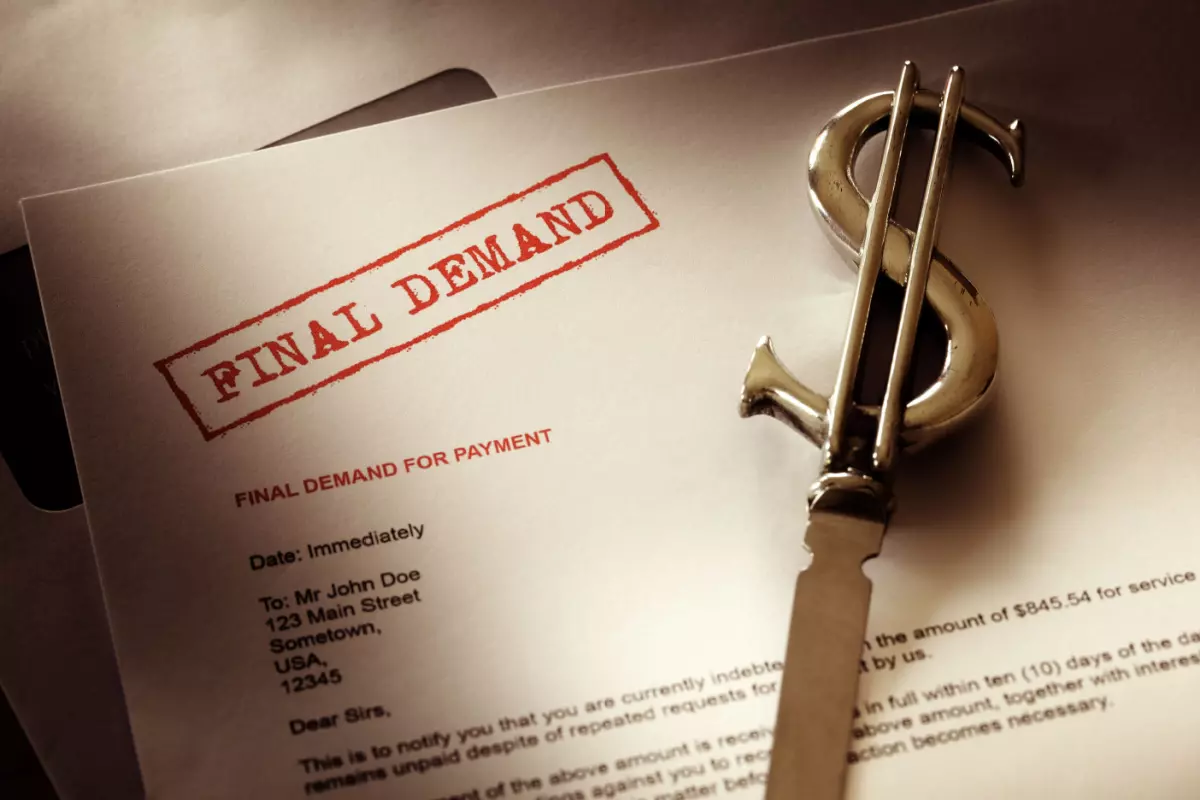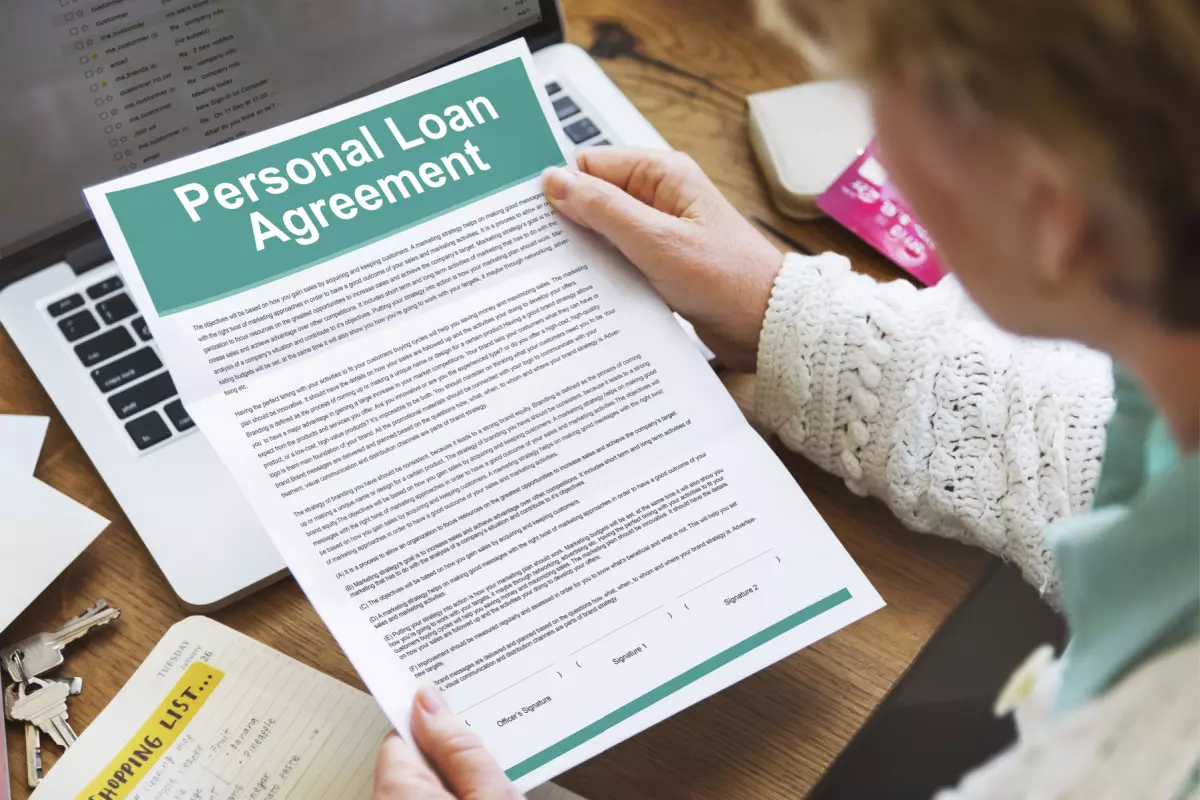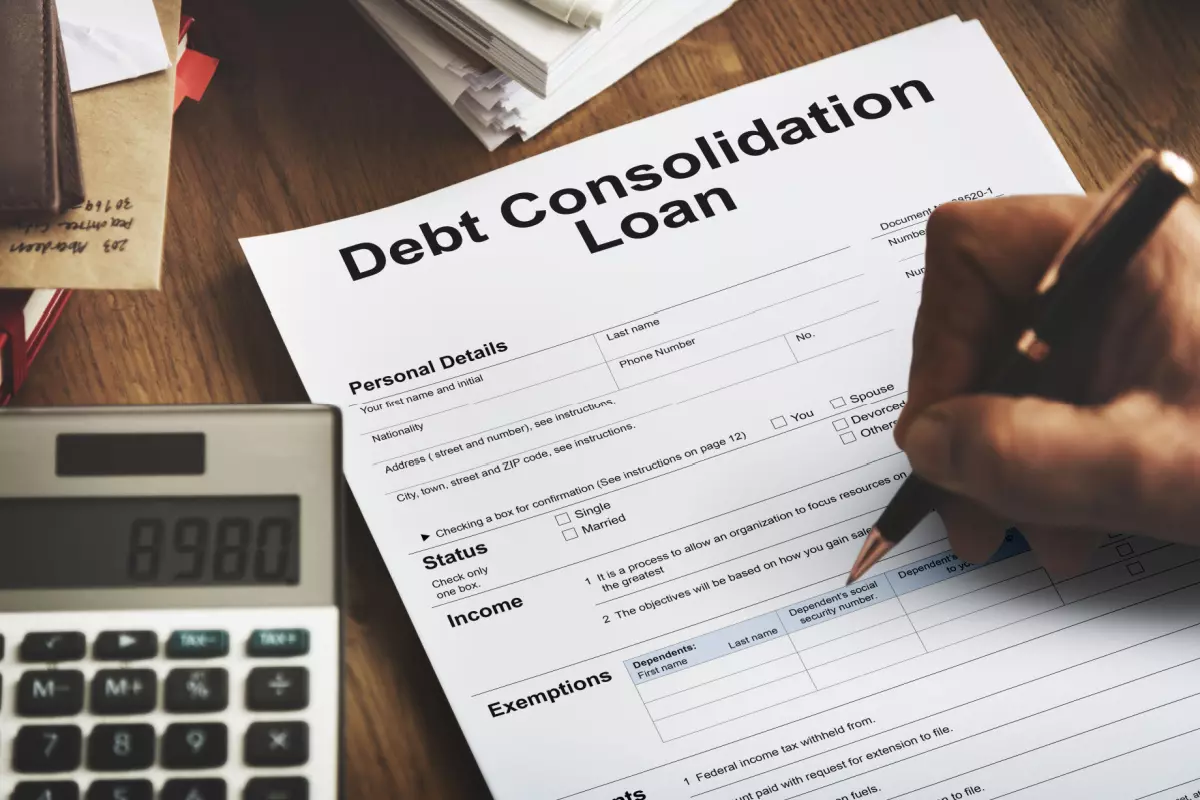Imagine receiving a letter from the court on a bright morning. The contents reveal that you’re now facing a County Court Judgement (CCJ). This wasn’t a fictional scenario but a reality for over 250,000 individuals in the UK during the first quarter of 2023.
Whether you are currently dealing with a CCJ, on the brink of receiving one, or motivated to protect your credit score, this blog will serve as your roadmap. Stay with us as we break down step-by-step what to do and how to avoid receiving a County Court Judgment.
What is a County Court Judgement?
A County Court Judgement (CCJ) is a UK court order against a borrower who fails to repay the money they owe. It’s a legal tool utilised by creditors to recover debts that haven’t been paid.
Here’s how it works: if you have a debt and fail to pay it despite repeated reminders from the creditor, they are required to send a letter of claim as a final reminder. You have 30 days to respond to this letter. If there is no resolution, the creditor may petition the court for a CCJ. If the court agrees with the creditor’s claim, it issues a CCJ against you.

A CCJ does not only demand repayment of the debt but also usually includes additional costs incurred during the collection process, such as court fees and interest. Upon issuance of a CCJ, a repayment deadline is set, which could be immediate or spread over a period.
Receiving a County Court Judgment can have serious consequences on your financial health and credit score, impacting your ability to secure a mortgage, take out a loan, or even open a new bank account.
How Long Does a County Court Judgement Last?
A CCJ remains on your credit record for six years from the date of the judgment. However, if you manage to pay off the CCJ within one full month of the judgment, you can apply to have it removed from your credit record, thereby minimising its adverse effects on your financial standing.
If you pay off the CCJ after the first month, it will be marked as “satisfied” but still stay on your credit record for six years. Although not as beneficial as a clean record, lenders can view a paid-off CCJ more favourably than an outstanding judgment.
What to Do If You Receive a Letter from the County Court
Receiving a letter from the County Court regarding a CCJ is a matter that requires your immediate attention. This signifies that a creditor has taken legal action to recover the money you owe, and the court has reviewed their claim. Here’s how you can proceed based on your circumstances:
- Agree with the judgement: you must complete an N9A Admission form detailing your financial circumstances and proposing a repayment plan and send it to your creditor. You’ll also need to complete an Income & Expenditure form and include it in your response.
- Dispute the judgment: you can file a defence if you believe you have already repaid the debt and your creditor has made a mistake. Seek legal advice as soon as possible, as there is a limit of 14 days for responding.
- Ask for an extension: you can request more time to file a defence by filing an Acknowledgement of Service back to the County Court. This will extend your time to file a defence to 28 days.
What Happens If You Ignore a County Court Judgement
Ignoring a CCJ can lead to a more complicated financial situation. First, additional costs might accrue to the original debt amount, such as court and solicitor’s fees. The court may also order your employer to make regular deductions from your wages to pay off the debt. The court may also order your bank account to be frozen by issuing a debit order.
Finally, the court may decide to issue a charging order to secure the debt against your property. If the debt remains unpaid, the court can sell your property to pay off the debt. Ignoring a CCJ can also have a long-term impact on your credit rating, as it will remain on it for six years, resulting in a lower credit rating. As a result, it could make it more difficult for you to qualify for emergency loans, mortgages, or credit cards.
How to Pay a CCJ
Discovering a CCJ has been filed against you can be unsettling. But addressing it quickly can help you regain control of your financial situation. Here are the steps to take to quickly pay off a CCJ:
Step 1: Obtain Judgement Details
Contact the County Court that issued the CCJ to obtain all necessary details regarding the judgment.

This will include how much you owe, how to pay (in full or in instalments), the deadline, who to pay, and the date the judgment was issued.
Step 2: Reach Out to the Creditor
Once you have the necessary information, contact the creditor to discuss the debt. Explain your situation and express your willingness to settle the debt. It’s advisable to contact a legal advisor before communicating with the creditor.
Step 3: Arrange a Payment Method
Negotiate a suitable repayment plan with the creditor. Creditors may be open to negotiation as their primary goal is to recover the owed amount. Ensure you get a written and signed agreement from the lender regarding the negotiated payment plan.
Step 4: Keep Digital Records
Maintain a digital record of all communications, agreements, and payments. This will be necessary for future references and for ensuring that the CCJ is marked as “satisfied” on your credit report once the debt is paid off.
Step 5: Rebuild Your Credit
Once you’ve paid off your CCJ, it’s time to work on rebuilding your credit. Start by obtaining a copy of your credit report from a reputable credit reference agency to ensure the CCJ is marked as “satisfied.”
Then, keep up with all current payments like loans, credit cards, and utility bills to demonstrate good financial behaviour. Consider using a credit-builder card to help boost your credit score. It works by allowing users to make small purchases that they can pay off each month, demonstrating to credit bureaus their ability to manage credit responsibly over time.
What if the Payments Aren’t Affordable?
Finding yourself in a position where the monthly payments towards a CCJ are too high can be stressful. However, you can apply for varied payments using Form N245. This form should include a detailed income and expenditure report and a list of unsecured debts. Apply, costing £14, to the court that issued the CCJ, and your creditor will review your offer.

If the creditor accepts your application, the County Court will notify you about the agreed terms and your new payment plan. However, if the creditor rejects the offer, the County Court will determine the payable amount based on the information you provided in the N245 form. You have the right to challenge this determination within 14 days, leading to a court review for a redetermination of your case.
How to Remove CCJ from a Credit Report
There are only two ways you can remove a CCJ from your credit report:
- Dispute the CCJ and get it successfully set aside: If you’re sure you have repaid the debt, you can file a defence within 14 days. You can ask the court to set aside the CCJ by filling out form N244. You have to attend the court hearing and present your case with the help of a legal representative. You must present evidence of your debt repayment, like receipts of payment, bank statements, and other communication between you and the creditor. If successful, the CCJ will be removed from your credit report.
- Pay the CCJ within 30 days: The other option is to pay the CCJ within 30 days from the judgment date. The court will then notify the credit reference agencies to remove the CCJ from your credit report.
How to Avoid Receiving a CCJ
Nobody wants a CCJ looming over them, as it can get you into a lot of trouble. But here’s how you can protect yourself from a CCJ:
Manage Your Finances Wisely
Taking control of your finances and enhancing your financial literacy is the first step toward avoiding a CCJ. Draft a realistic budget that covers all your expenses and leaves room for debt repayment. Start by determining all your sources of income and expenses. Look for areas to cut back on spending, such as dining out or cancelling unused subscriptions. Instead, prioritise paying off high-interest debts first.
You can use budgeting apps or tools like Snoop or Plum to keep track. Build an emergency fund with at least three to six months’ worth of living expenses to cover unforeseen circumstances.
Address Payment Reminders Promptly
Ignoring payment reminders from creditors can fast-track a CCJ. Addressing these reminders promptly shows your willingness to settle the debt. If you feel like you’re having trouble repaying the debt, take action immediately by negotiating new payment terms with your creditor.
Consider a Debt Management Plan
A debt management plan (DMP) is an agreement between you and your creditors to pay all your debts. It’s a viable option when you cannot afford to meet the monthly minimum payments required by your creditors.
Here’s how it works: Under a DMP, you agree to pay a fixed monthly amount, which is then distributed among your creditors. The benefit includes a simplified payment structure and potential freezing or reduction of interest and charges on your debts. A DMP demonstrates your commitment to repaying your debts, which in turn may prevent further legal action such as a CCJ.
Consider Debt Consolidation
Debt consolidation can be another effective strategy to prevent a CCJ. This involves combining all your existing debts into a single debt with a lower interest rate.

It works by taking out a new loan to pay off multiple debts, such as credit cards. This new loan typically has a lower interest rate or longer repayment term, which can reduce your monthly payments. By consolidating your debts, you have only one payment to make each month, simplifying your finances.
Seek Debt Counselling
Debt counselling can provide you with valuable insights and strategies to better manage your debt and financial health. Debt counsellors can offer personalised advice based on your financial situation, helping you understand your debt, create a budget, and develop a plan to pay down your debts. They can also negotiate with creditors on your behalf to potentially lower interest rates.
Mistakes to Avoid
If you receive a County Court Judgment (CCJ), you should avoid certain mistakes that could make the situation worse. Here’s a list of common missteps and how to steer clear of them:
- Ignoring the Problem: Disregarding a CCJ can lead to enforcement actions like bailiffs visiting your home, an attachment of an earnings order, or even a charging order against your property, increasing the debt through added enforcement fees.
- Missing Court Dates: Missing court dates can result in unfavourable judgments, increased costs, or even a warrant for your arrest in extreme cases.
- Skipping Payments: Failing to make scheduled payments can incur late fees, increased interest rates, and possibly additional court costs, making the debt grow larger over time.
- Forgetting Your Budget: Without a budget, you may find it challenging to manage your CCJ payments alongside your daily living expenses, which could lead to financial hardship.
- Not Talking to Creditors or the Court: Lack of communication could result in missed opportunities to negotiate payment terms, rectify errors, or even settle the debt for a lesser amount.
- Not Checking Your Credit Report: A CCJ will negatively impact your credit score. If you’ve paid off your CCJ, monitor your report to make sure it is removed.
- Not Getting Advice: Professional advice can clarify the implications of a CCJ and guide managing it, potentially saving you money and stress in the long run.
- Delaying Action: Procrastination can limit your options. For instance, paying the CCJ within a month can lead to its removal from your credit report, preserving your credit rating.
- Not Challenging Mistakes: Errors in the CCJ process, like incorrect amounts or mistaken identity, should be challenged promptly through a set-aside application to prevent unjust financial obligations.
- Not Contacting Creditors If There Are Errors: Quick communication with creditors about errors or proof of payment can lead to the correction or removal of the CCJ, preventing further financial and legal complications.
- Just Waiting for It to Go Away: While CCJs are removed from your credit report after six years, passive waiting could prolong your financial recovery, especially if creditors continue to attempt to collect the debt.
Bottom Line
Navigating the realm of County Court Judgements (CCJs) might feel like a daunting venture. However, armed with the right knowledge and action plan, you can tackle this financial hurdle and steer your credit toward calmer waters. Whether facing, fearing, or fighting a CCJ, the insights provided here are your compass in the storm, pointing the way to safer financial shores.